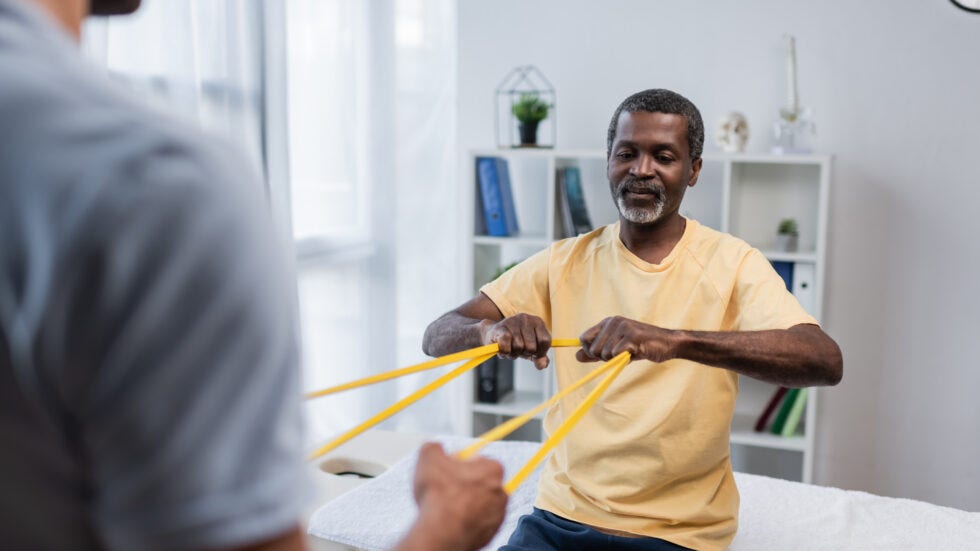
Home Health Aides: In-Home Care for People with Disabilities
Many individuals require assistance with daily tasks due to age or disability. A Home health aide (HHA) plays an important role in supporting these individuals by providing help with activities like dressing, bathing, and transportation. Home health aides offer personalized care in the comfort of one's home, making them helpful for people of all ages affected by disability. Whether aiding a young quadriplegic living independently, supporting parents with a disabled child, or assisting older adults who wish to age in place, home health aides bridge the gap in care for people with disabilities. By helping with activities of daily living (ADLs), home health aides ensure those with cognitive or physical challenges can maintain their independence and quality of life. Home health aides not only help to lighten the load for family members who are caregivers, but also allows clients to receive targeted support in specific areas where they need it the most.
What is a Home Health Aide?
Understanding the distinctions between different types of in-home care providers is crucial for ensuring individuals receive the appropriate level of care. Home Health Aides and in-home nurses have specific roles and responsibilities tailored to meet various needs. HHAs often assist with personal care and basic health monitoring, ensuring clients' daily needs are met without completing medical tasks reserved for licensed professionals. In contrast, in-home nurses are qualified to provide medical care, including administering medications and managing health conditions. These distinct roles are important because they help avoid overlaps and gaps in care that could lead to complications. By clearly defining these responsibilities, families and individuals can better determine which type of professional care is necessary for their situation.
What are the Duties of a Home Health Aide?
Home health aides play an important role in supporting individuals with disabilities by assisting with daily activities and ensuring their well-being. Their responsibilities encompass a range of tasks that contribute to the client's health and comfort including:
- Personal Hygiene: Home health aides assist clients with essential personal care activities, including bathing, dressing, grooming, and toileting. This support ensures clients maintain their hygiene and dignity, which positively impacts overall health.
- Mobility Support: They help clients safely navigate their homes, whether by assisting with transfers from a bed to a chair or providing support while walking. This assistance helps to prevent falls and promote independence.
- Meal Preparation: Home health aides plan and prepare meals tailored to the client's dietary needs and preferences.
- Light Housekeeping: Aides perform household chores such as laundry, sweeping, and tidying to maintain a clean and comfortable living environment. However, they typically do not assist with deep cleaning, which is often reserved for professional cleaning services.
- Transportation: Home health aides drive clients to medical appointments, grocery stores, and other outings. Additionally, they can help schedule and arrange transportation as needed, ensuring clients have access necessary services and social activities.
- Companionship: Aides provide social and emotional support which is especially important for those who may face isolation due to challenges when getting in and out of the home.
What Does a Home Health Aide Not Do?
While home health aides can be helpful for people with disabilities, there are limitations to their roles due to their lack of a medical license. A home health aide cannot:
- Administer Medication: They can remind clients to take their medicines and help organize medications, but, home health aides are not allowed to administer medications.
- Perform Medical Procedures: Home health aides are not trained or authorized to conduct medical procedures such as starting IVs, inserting feeding tubes, or giving injections. These procedures require the expertise of a licensed medical professional.
- Diagnose Conditions: Without a medical license, home health aides cannot diagnose medical conditions. However, they can observe and report symptoms to healthcare providers, who can then make an informed diagnosis.
What is the Difference Between a Caregiver and a Home Health Aide?
Caregivers are often informal helpers like family members or friends, offering non-professional support with tasks such as cooking and companionship. Home health aides (HHAs) are trained professionals who provide both non-medical and basic medical care, including monitoring vital signs and assisting with personal care. Unlike caregivers, HHAs undergo specific training and work under healthcare professional supervision, ensuring their actions align with a care plan.
Wheelchair Accessible Vehicle's for Caregivers
Beyond home health care, wheelchair accessible vehicles can provide a safe transportation solution for individuals with disabilities and their caregivers. Contact your local BraunAbility dealer today to learn more about wheelchair accessible vehicles and mobility products.




